Digital Policy Perspectives
ITU/UNESCO Broadband Commission for Sustainable Development
Session 255
Digital Policies to Advance Equity & Inclusion
In today’s rapidly evolving digital landscape, the creation and implementation of inclusive and equitable digital policies are critical to ensuring that technological advancements benefit everyone, without exception. Equity and inclusion must be at the heart of AI development, ensuring that algorithms are designed with diverse inputs to represent all users fairly. Similarly, equitable access to connectivity is essential to eliminate the digital divide, enabling equal opportunities for all to participate in the digital economy. Government digital services must also prioritize inclusiveness, ensuring that all citizens can access crucial services without barriers. Additionally, effective data governance must uphold the principles of equity and inclusion, protecting the rights and privacy of every individual while promoting transparency and trust.
The session will convene a distinguished panel of experts from the Broadband Commission alongside high-level guest speakers from a mix of private, public, government, and civil society sectors to share insights on how digital policies can foster an environment that champions both equity and inclusion, ensuring that no one is left behind. Our panel of experts will explore these pivotal areas, discussing how fostering equity and inclusion in AI, connectivity, government digital services, and data governance can form the cornerstone of progressive digital policies. Participants will be introduced to emerging innovative approaches and exemplary best practices that are setting new standards in making digital inclusivity a reality across the globe.
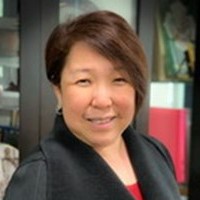
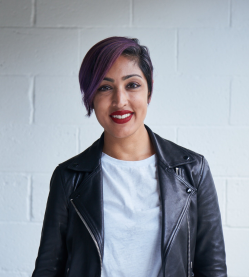
Dr. Rumman Chowdhury’s passion lies at the intersection of artificial intelligence and humanity. She is a pioneer in the field of applied algorithmic ethics, creating cutting-edge socio-technical solutions for ethical, explainable and transparent AI. She is an active contributor to discourse around responsible technology with bylines in the Atlantic, Forbes, Harvard Business Review, Sloan Management Review, MIT Technology Review and VentureBeat.
Dr. Chowdhury currently runs Parity Consulting, Parity Responsible Innovation Fund, and is a Responsible AI Fellow at the Berkman Klein Center for Internet & Society at Harvard University. She is also a Research Affiliate at the Minderoo Center for Democracy and Technology at Cambridge University and a visiting researcher at the NYU Tandon School of Engineering.
Previously, Dr. Chowdhury was the Director of META (ML Ethics, Transparency, and Accountability) team at Twitter, leading a team of applied researchers and engineers to identify and mitigate algorithmic harms on the platform. Prior to Twitter, she was CEO and founder of Parity, an enterprise algorithmic audit platform company. She formerly served as Global Lead for Responsible AI at Accenture Applied Intelligence. In her work as Accenture’s Responsible AI lead, she led the design of the Fairness Tool, a first-in-industry algorithmic tool to identify and mitigate bias in AI systems. Dr. Chowdhury co-authored a Harvard Business Review piece on it’s influences and impact.
Dr. Chowdhury is dedicated to cultivating and growing the next wave of technology-forward companies enabling the responsible use of emerging technologies. She is a General Partner (and founder) of the Parity Responsible Innovation venture capital fund. She also serves as a mentor for the Creative Destruction Lab and as a board member of Startups and Society.
Dr. Chowdhury is deeply engaged in AI global policy, serving as a board member of the UK Center for Data Ethics and Innovation, and on UNESCO’s Broadband Commission for Sustainable Development. She has helped shape policy - as advisor to the UK House of Lords Parliamentary group on AI, in her testimony to the FTC, New York City Algorithmic Commission, the UN, OECD, Partnership on AI, and other global AI and ethics organizations.
She serves on multiple boards, including Oxford University’s Commission on AI and Governance, the UK’s Center for Data Ethics and Governance, AI4All, a group dedicated to drawing underrepresented groups into STEM, the SSRC’s Just Tech Advisory Group, the University of Virginia’s Data Science Program, and Patterns, a data science journal by the publishers of Cell.
Rumman has been featured in international media, including the Wall Street Journal, New York Times, Financial Times, Harvard Business Review, NPR, MIT Sloan Magazine, MIT Technology Review, BBC, Axios, Cheddar TV, CRN, The Verge, Fast Company, Quartz, Corrierre Della Serra, Optio, Australian Broadcasting Channel and Nikkei Business Times.
She was named one of BBC’s 100 Women, recognized as one of the Bay Area’s top 40 under 40, and a member of the British Royal Society of the Arts (RSA). She has also been named by Forbes as one of Five Who are Shaping AI.
Dr. Chowdhury holds two undergraduate degrees from MIT, a master's degree in Quantitative Methods of the Social Sciences from Columbia University, and a doctorate in political science from the University of California, San Diego.

Melle Tiel Groenestege is Senior Director Digital Inclusion at the GSMA, the organisation representing the interests of mobile operators and the broader ecosystem worldwide. At GSMA’s Digital Inclusion programmes, he leads work on public policy, research as well as private sector partnerships that help address the digital divide in low- and middle-income countries.
Prior to joining the GSMA, Melle was responsible for Government Relations at the headquarters of VEON, one of the largest telecommunication providers active in emerging markets. Before joining VEON, Melle worked at the International Telecommunications Union on corporate strategy, focusing on the role of digital technologies in advancing the UN Sustainable Development Agenda.
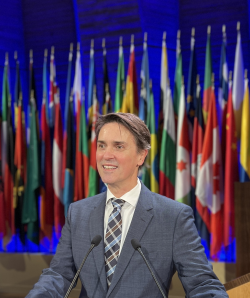
Cédric Wachholz heads the Digital Policies and Digital Transformation Section (CI/DIT) in UNESCO, Gender Equality being one of the Organization’s two global priorities. UNESCO’s DIT Section supports Member States in navigating human right-based digital transformations through national assessments of digital enabling environments, accompanied by policy advice for inclusive and multistakeholder driven digital governance. We enhance the capacities of governments to implement digital transformation initiatives across their executive, legislative and the judicial branches. DIT also facilitates digital cooperation through multistakeholder fora to develop capacities, exchange knowledge on good digital policy practices and enhance strategic foresight, including multiple Artificial Intelligence (AI) work streams.
With over 25 years dedicated to international digital development, Cédric previously served as Chief of the Executive Office of UNESCO’s Communication and Information Sector, after having been the coordinator of UNESCO’s World Summit on the Information Society (WSIS) follow-up, covering a wide range of ICT issues in the fields of the Sciences, Culture, Education and Communication and Information, including also Internet Governance. Cédric is originally an e-learning specialist and headed before the ICT in Education Units in UNESCO’s Education Sector HQs, and previously in UNESCO’s Asia and Pacific Regional Bureau for Education in Bangkok, Thailand.
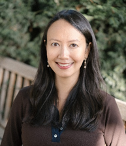
Leona Verdadero is a Programme Specialist at UNESCO, focusing on digital policies and digital transformation. Previously, she was at the United Nations Development Programme (UNDP) Global Gender Team as an AI Specialist, working on initiatives at the intersection of AI and gender issues, including developing tools to monitor social media for online digital violence. Prior to UNDP, she was at the World Bank and the Organization for Economic Cooperation and Development (OECD) as an economist and policy analyst supporting digital innovation and investment projects. She has country project experience in Brazil, Colombia, Myanmar, Vietnam, Philippines, Tanzania, and South Africa. She is a member of the NYC Women in Machine Learning & Data Science and was recently named as one of the 2024 100 Brilliant Women in AI Ethics by the Women in AI Ethics Group. Leona holds a degree in Master of International Affairs from Columbia University and an Advanced Certificate in Applied Data Science and Informatics at the NYU Tandon School of Engineering.
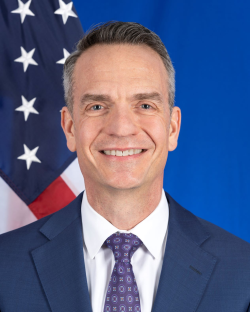
Steve Lang was confirmed by the Senate as U.S. Coordinator of International Communications and Information Policy with the rank of Ambassador on May 14, 2024. He concurrently serves as the Deputy Assistant Secretary for International Information and Communications Policy and has been in that role since November 2022. Previously, he served as the Minister-Counselor for Economic Affairs at U.S. Embassy Tokyo (2020-2022) and in the Bureau of Economic and Business Affairs’ Office of International Communication and Information Policy as Director of both the Office of Multilateral Affairs (2017-2018) and the Office of Bilateral and Regional Affairs (2015-2017).
From 2013 to 2015, Steve was the Political Counselor at the U.S. Embassy in Mexico City. Prior to that, he served as Deputy Director of the Office of Chinese and Mongolian Affairs at the Department of State (2011-2013) and as a Senior Analyst in the U.S. Trade Representative’s Office of Japan, Korea, and APEC Affairs (2010-2011). Other tours include the U.S. Consulate-General in Guangzhou, China; the American Institute in Taiwan in Taipei; the Bureau of Western Hemisphere Affairs; the U.S. Embassy in Bangkok; and the U.S. Interests Section in Havana, Cuba.
Before joining the State Department, Ambassador Lang worked as an economist for the Department of Labor and is a graduate of Georgetown University. He is married to Karin Lang and has two daughters.
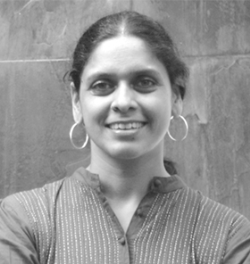
Anita Gurumurthy is a founding member and Executive Director of IT for Change where she leads research and advocacy on data and AI governance, platform regulation, and feminist frameworks on digital justice. She serves as an expert on various bodies – including as co-chair of the T20’s digital transformation working group on platform governance and has been part of the High Level Committee of the NetMundial+10 under Brazil’s leadership , the UN Secretary-General’s 10-Member Group on Technology Facilitation, and the Paris Peace Forum’s working group on algorithmic governance. Anita is also a Board member of global justice organizations such as the ETC Group, and University centers such as the Tech & Policy Lab at the University of Western Australia, and International Development and Social Change program of Loughborough University. Anita contributes regularly to academic and media spaces.
-
 C1. The role of governments and all stakeholders in the promotion of ICTs for development
C1. The role of governments and all stakeholders in the promotion of ICTs for development
-
 C4. Capacity building
C4. Capacity building
-
 C5. Building confidence and security in use of ICTs
C5. Building confidence and security in use of ICTs
-
 Goal 9: Build resilient infrastructure, promote sustainable industrialization and foster innovation
Goal 9: Build resilient infrastructure, promote sustainable industrialization and foster innovation
-
 Goal 10: Reduce inequality within and among countries
Goal 10: Reduce inequality within and among countries